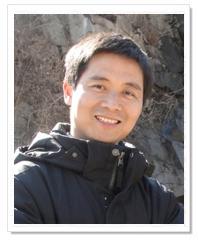2013.5.21 Synthetic Yeast Chromosome XII and beyond
Junbiao DAI
Associate professor, School of Life Sciences, Tsinghua Univeristy 2006-2011 Postdoctoral fellow, Department of Molecular Biology and Genetics, Johns Hopkins University, School of Medicine2000-2006 Ph.D. , Department of Genetics, Development and Cell Biology, Iowa State University1997-2000 M.S. , Department of Biological Science and Biotechnology, Tsinghua University1993-1997 B.S., Department of Intensive Instruction, Nanjing University |  |
Time:1:00pm, May. 21, 2013
Address:Rm. 102, Old Chemistry Building, east Wing, 1rd floor, CQB
Abstract:
Recent advances in DNA synthesis technology have enabled the construction of novel genetic pathways and genomic elements, furthering our understanding of system-level phenomena. The ability to synthesize large segments of DNA allows the engineering of pathways and genomes according to arbitrary sets of design principles. I will describe the international synthetic yeast genome project (Sc2.0), and the effort to synthesize the first million-base-pair eukaryotic chromosome: the Saccharomyces cerevisiae chromosome XII. The synthetic genome features several systemic modifications, including an inducible evolution system termed SCRaMbLE (Synthetic Chromosome Rearrangement and Modification by LoxP-mediated Evolution). We show the utility of the SCRaMbLE system as a novel method of genome alteration, capable of generating complex genotypes and a broad variety of phenotypes and genotypes. Detected alterations include deletions, inversions, and duplications. The fully synthetic yeast genome will allow restructuring of the yeast genome on an unparalleled scale, and will open the door to a new type of combinatorial genetics based on variations in gene content and copy number, rather than base changes.
Host:Fangting LI